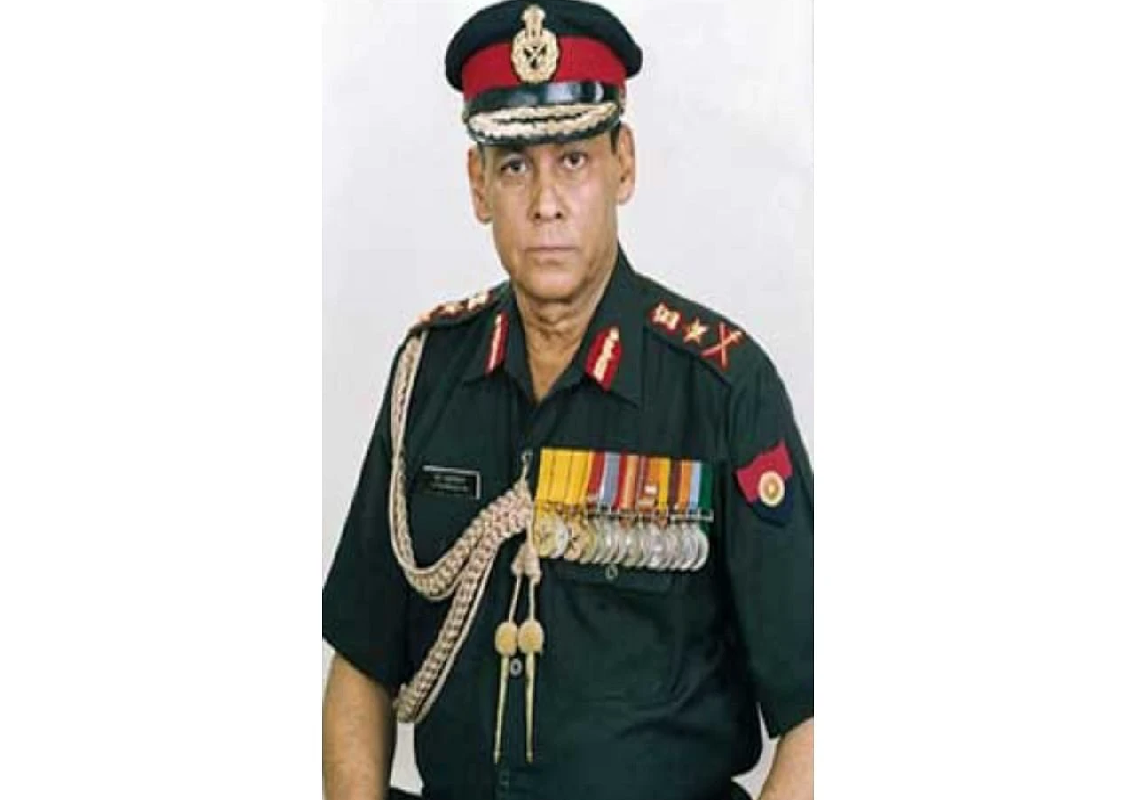Chennai: India mourns the loss of General Sundararajan Padmanabhan, a distinguished and highly decorated officer, who passed away on Monday at the age of 83. Known for his pivotal role in leading the Indian Army to significant victories against militants in Jammu and Kashmir during the early 1990s, General Padmanabhan’s legacy is one of unwavering commitment to the nation.
Early Life and Military Education
Born on December 5, 1940, in Thiruvananthapuram, Kerala, General Padmanabhan embarked on his illustrious military journey from a young age. He was an alumnus of the prestigious Rashtriya Indian Military College (RIMC) in Dehradun and the National Defence Academy (NDA) in Pune. His military career took flight after he was commissioned into the Regiment of Artillery upon graduating from the Indian Military Academy (IMA) on December 13, 1959.
A Career Marked by Excellence
General Padmanabhan’s career is a testament to his dedication and strategic acumen. He commanded an Independent Light Battery from August 1975 to July 1976 and later the esteemed Gazala Mountain Regiment from September 1977 to March 1980. This regiment, one of the oldest artillery regiments of the Indian Army, has a storied history of participation in numerous wars.
In addition to his command roles, General Padmanabhan served as an Instructor Gunnery at the School of Artillery in Deolali and as Brigade Major of an infantry brigade during its raising. His exceptional service as Colonel General Staff of a Mountain Division from January 1983 to May 1985 earned him the Vishisht Seva Medal (VSM).
Commanding the 15 Corps and Combatting Militancy
One of the most notable phases of General Padmanabhan’s career was his tenure as the Commander of the 15 Corps in Jammu and Kashmir. From July 1993 to February 1995, as a Lieutenant General, he led the Indian Army in making significant gains against militants in the region. His leadership was instrumental in scaling down militant activities, which marked a turning point in the Army’s operations in the valley.
For his distinguished service as the 15 Corps Commander, General Padmanabhan was awarded the Ati Vishisht Seva Medal (AVSM). Following this, he was appointed as the Director General of Military Intelligence (DGMI), where he continued to play a crucial role in shaping India’s defence strategies.
Chief of Army Staff and Later Years
In September 2000, General Padmanabhan was appointed as the Chief of Army Staff, a position he held until December 2002. During his tenure, he oversaw various critical operations and further solidified his reputation as a leader of unparalleled skill and integrity.
After his retirement, General Padmanabhan chose Chennai as his home. A prolific writer, he authored two books, sharing his vast knowledge and experiences with a broader audience. His writings and reflections on military strategy and leadership have been widely respected in both military and civilian circles.
A Legacy Remembered
General Padmanabhan’s passing marks the end of an era for the Indian Army. His contributions to the nation, particularly in Jammu and Kashmir, and his leadership during some of the most challenging periods in Indian military history, will be remembered with deep respect and admiration.
As India bids farewell to one of its most revered military leaders, General Padmanabhan’s legacy will continue to inspire generations of soldiers and citizens alike. His life was a testament to the values of courage, dedication, and service to the nation.
